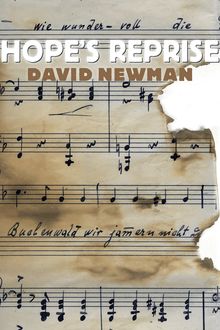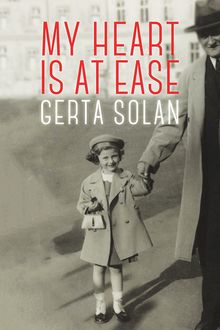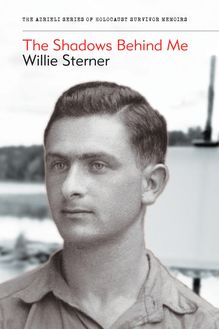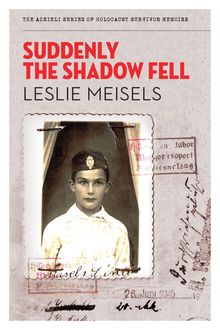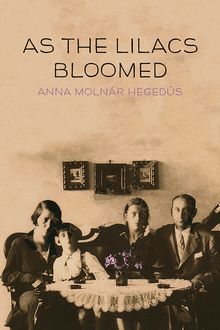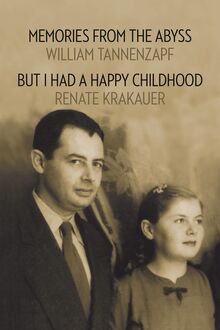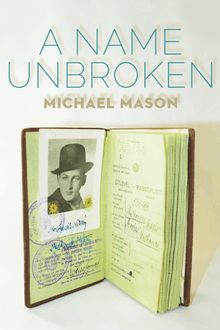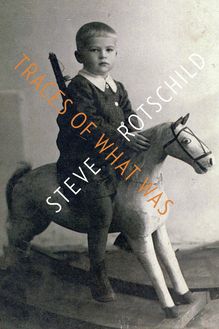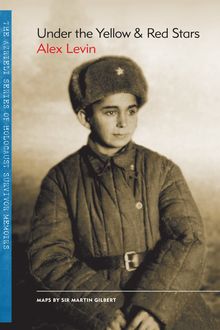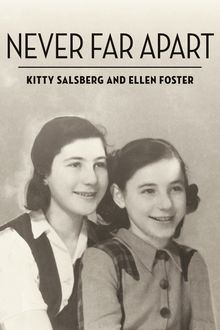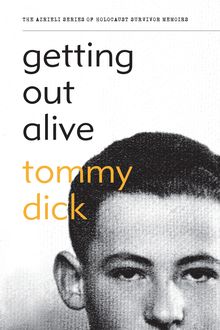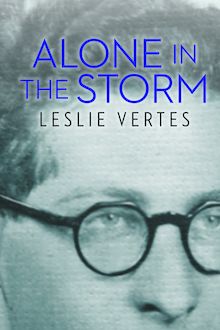Survival Kit , livre ebook
114
pages
English
Ebooks
2012
Vous pourrez modifier la taille du texte de cet ouvrage
Obtenez un accès à la bibliothèque pour le consulter en ligne En savoir plus
Découvre YouScribe en t'inscrivant gratuitement
Découvre YouScribe en t'inscrivant gratuitement
114
pages
English
Ebooks
2012
Vous pourrez modifier la taille du texte de cet ouvrage
Obtenez un accès à la bibliothèque pour le consulter en ligne En savoir plus
Publié par
Date de parution
01 septembre 2012
Nombre de lectures
0
EAN13
9781897470763
Langue
English
Publié par
Date de parution
01 septembre 2012
Nombre de lectures
0
EAN13
9781897470763
Langue
English
Survival Kit
Zuzana Sermer
The Azrieli Series of Holocaust Survivor Memoirs
INTERNATIONAL ADVISORY COUNCIL
Doris Bergen, Chancellor Rose and Ray Wolfe Chair in Holocaust Studies, University of Toronto
Sara R. Horowitz, Director of the Israel and Golda Koschitzky Centre for Jewish Studies, York University
Nechama Tec, Professor Emerita of Sociology, University of Connecticut
Avner Shalev, Chairman of the Yad Vashem Directorate, Jerusalem
Naomi Azrieli, Publisher
Andrea Knight, Managing Editor
Arielle Berger, Editor
Elizabeth Lasserre, Senior Editor, French-Language Editions
Aurélien Bonin, Assistant Editor / Researcher, French-Language Editions
Elin Beaumont, Outreach and Communications Manager
Tim MacKay, Program Assistant
Susan Roitman, Executive Coordinator
Mary Mellas, Executive Coordinator
Mark Goldstein, Art Director
Nicolas Côté, Layout, French-Language Editions
Maps by François Blanc
Contents
The Azrieli Series of Holocaust Survivor Memoirs
Series Preface: In their own words...
About the Glossary
Introduction
Dedication
Author’s Preface
My Hometown
Family Roots
The Lives We Knew
Searching for Safety
Escape to Hungary
Another Close Call
Liberation and Loss
Rebuilding Our Life
Life in Canada
Reflections
Epilogue
Glossary
Photographs
Copyright
About the Azrieli Foundation
Also Available
Series Preface: In their own words...
In telling these stories, the writers have liberated themselves. For so many years we did not speak about it, even when we became free people living in a free society. Now, when at last we are writing about what happened to us in this dark period of history, knowing that our stories will be read and live on, it is possible for us to feel truly free. These unique historical documents put a face on what was lost, and allow readers to grasp the enormity of what happened to six million Jews – one story at a time.
David J. Azrieli, C.M., C.Q., M.Arch
Holocaust survivor and founder, The Azrieli Foundation
Since the end of World War II , over 30,000 Jewish Holocaust survivors have immigrated to Canada. Who they are, where they came from, what they experienced and how they built new lives for themselves and their families are important parts of our Canadian heritage. The Azrieli Foundation’s Holocaust Survivor Memoirs Program was established to preserve and share the memoirs written by those who survived the twentieth-century Nazi genocide of the Jews of Europe and later made their way to Canada. The program is guided by the conviction that each survivor of the Holocaust has a remarkable story to tell, and that such stories play an important role in education about tolerance and diversity.
Millions of individual stories are lost to us forever. By preserving the stories written by survivors and making them widely available to a broad audience, the Azrieli Foundation’s Holocaust Survivor Memoirs Program seeks to sustain the memory of all those who perished at the hands of hatred, abetted by indifference and apathy. The personal accounts of those who survived against all odds are as different as the people who wrote them, but all demonstrate the courage, strength, wit and luck that it took to prevail and survive in such terrible adversity. The memoirs are also moving tributes to people – strangers and friends – who risked their lives to help others, and who, through acts of kindness and decency in the darkest of moments, frequently helped the persecuted maintain faith in humanity and courage to endure. These accounts offer inspiration to all, as does the survivors’ desire to share their experiences so that new generations can learn from them.
The Holocaust Survivor Memoirs Program collects, archives and publishes these distinctive records and the print editions are available free of charge to libraries, educational institutions and Holocaust- education programs across Canada, and at Azrieli Foundation educational events. They are also available for sale to the general public at bookstores. All editions of the books are available for free download on our web site at: www.azrielifoundation.org .
The Azrieli Foundation would like to express appreciation to the following people for their invaluable efforts in producing this series: Sherry Dodson (Maracle Press), Sir Martin Gilbert, Stan Greenspan, Mia Spiro, Keaton Taylor, Sylvia Vance, and Margie Wolfe and Emma Rodgers of Second Story Press.
About the Glossary
The following memoir contains a number of terms, concepts and historical references that may be unfamiliar to the reader. For information on major organizations; significant historical events and people; geographical locations; religious and cultural terms; and foreign-language words and expressions that will help give context and background to the events described in the text, please see the Glossary .
Introduction
Zuzana Sermer (née Weinberger) begins her memoir of surviving World War II with an unanswerable question: “How can I explain the unexplainable?” In voicing this, she echoes the queries that every Holocaust survivor must have asked himself or herself: Why did I survive when so many perished? Was it by fate or chance, quick thinking or luck? Sermer’s memoir, Survival Kit , is an elaboration of her answer, formulated long after the events. In the end, she comes to the conclusion that her own survival is the result of “luck, coincidence and occurrences that I have come to think of as miracles.”
Survival Kit is at once a history of the German invasion of Czechoslovakia and Hungary and a meditation on the vagaries of chance and the naive bravery that allowed her to escape time and time again from the clutches of a seemingly inevitable fate. Sermer credits her husband, Arthur, with the strength and boldness that rescued them from hopelessness again and again. Theirs is a love story and one of lasting togetherness that moves from Czechoslovakia to German-occupied Slovakia to Hungary and back again, this time to Communist Czechoslovakia, and finally to Canada. Their revenge for those they lost was to stay alive, live well and create new generations. Zuzana and Arthur, who passed away in 2003, had four children and eight grandchildren; they established themselves in Toronto in 1968, where Zuzana still lives.
Sermer began to write after the war, while raising her children in Slovakia. A keen observer of political and family life, her articles appeared in magazines and newspapers. There was often a moral to her stories, but the story she tells here is not so certain. It is, rather, a story searching for a moral. It’s a story of good fortune, when Holocaust stories generally contain so little, and what Sermer calls her “miracles”: “My parents’ love, my bold naïveté, the courage and determination of my fiancé.” Sermer is the lucky and plucky heroine in a story that turns out well. To the question of whether we need another story of the Holocaust at all, Sermer replies, “The conclusion I have reached is that these are our stories to tell, and tell them we should. It is up to others to decide if they will read them—my hope is that they will.”
In her memoir, Zuzana Sermer introduces us to Humenné, the town at the foot of the Carpathian Mountains in Czechoslovakia where she was born on August 29, 1924. Czechoslovakia was established as a country in the aftermath of World War I, when the 1921 Treaty of Trianon dissolved the Austro-Hungarian Empire. The treaty left Hungary with a third of its territories and population although the countries that were split off from Hungary – the current-day Romania, Slovakia, Serbia, Ukraine, Croatia, Austria and Slovenia – had large numbers of ethnic Hungarians and Hungarian speakers. A quarter of the Slovak population who considered themselves Hungarian in language and in culture suddenly found themselves minorities in a foreign country. But they assimilated quickly. Even though her family spoke Hungarian at home, Sermer grew up loving her nation of Czechoslovakia, “a pearl of democracy” under the leadership of Tomáš Masaryk, the nation’s “father.” Jews made up approximately 135,000 of the four million Slovak population and the idyll Sermer describes was not uncommon: mixed Jewish and Christian neighbourhoods and friendships, a good education in Slovak, Czech and Hungarian, a tolerant nation, a pious and humble father and a loving family. Sermer attended secular school and, on Sunday, the Beth Jacob school for girls run by the very Orthodox Agudah, an organization holding that nothing worldly should come between Jews and the study of the Torah. In contrast, the religious and Zionist Mizrachi movement, which taught that the Torah and “working the Land of Israel went hand in hand,” appealed to many in Sermer’s hometown. Zuzana joined the Mizrachi youth group Bnei Akiva, but writes that she was most affected by her parents’ values.
All that changed with the German occupation of Czechoslovakia (1938–1945), which began with the Munich Agreement of September 29–30, 1938. Without the consultation of Czechoslovakia, the major European powers sought to appease Germany by allowing the Nazis to annex Czechoslovakia’s northern and western border regions of Bohemia, Moravia and Silesia, known collectively as the Sudetenland. Ostensibly, the rationale for this was to alleviate the suffering of ethnic Germans in the regions that had been granted to Czechoslovakia twenty-one years earlier. On March 16, 1939, however, the German Wehrmacht moved into the remainder of Czechoslovakia and, from Prague Castle, Hitler proclaimed Czechoslovakia to be reconstituted as the Protectorate of Bohemia and Moravia and the independent state of Slovakia. Despite its nominal independence, h
